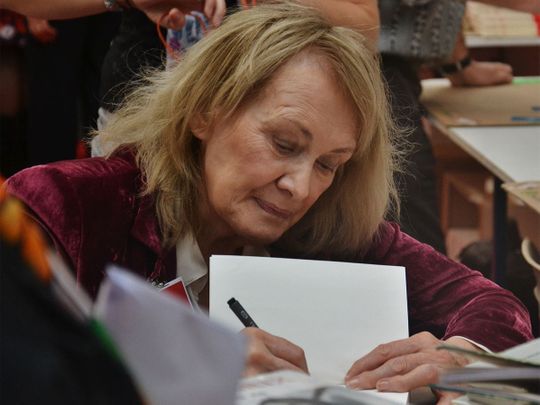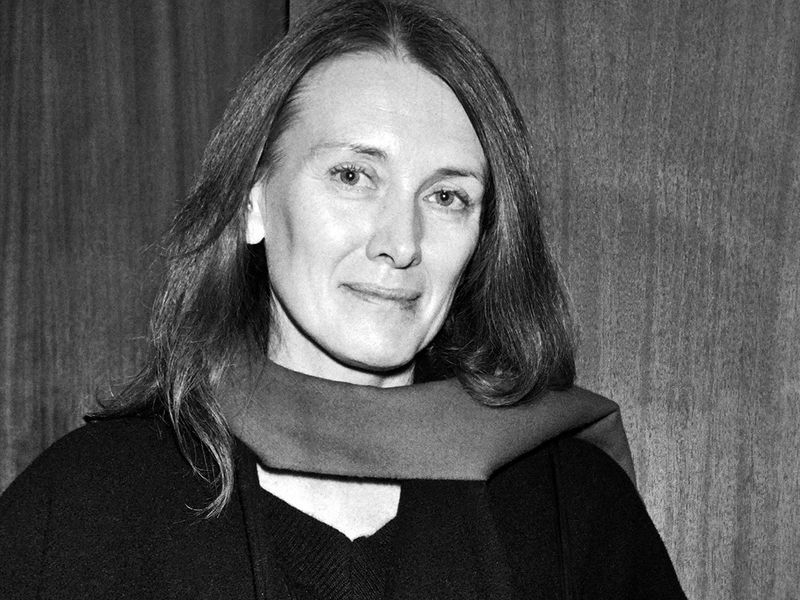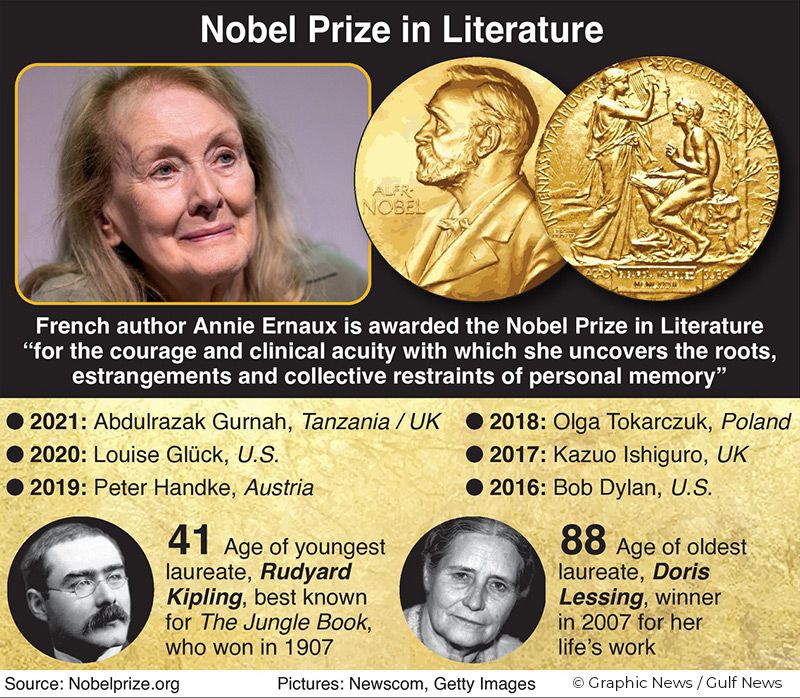
French author Annie Ernaux, 82, was awarded the 2022 Nobel Prize in Literature on Thursday.
She won the 2022 Nobel Prize in Literature "for the courage and clinical acuity with which she uncovers the roots, estrangements and collective restraints of personal memory."
In a statement, Anders Olsson, Chairman of the Nobel Committee at the Swedish Academy noted, "Annie Ernaux manifestly believes in the liberating force of writing. Her work is uncompromising and written in plain language, scraped clean."

Ernaux's notable work includes her Magnum Opus Mémoire de fille (A Girl’s Story), The Possession and The Years.
Considered a pioneer of autofiction, her work often talks about her personal experiences in a bold, candid language.
She first shot to prominence on the French literary scene with her groundbreaking novel La place (A Man’s Place).
Ernaux's other remarkable work Happening, detailing her life as a university student in France in 1963, was later adapted as a movie.
In 2019, she was nominated for the International Booker Prize for The Years.
The Nobel Prize in literature is widely regarded as the most prestigious literary award in the world.

French President Emmanuel Macron has praised Ernaux for her Nobel but the novelist has been a critique of the president.
A supporter of left-wing causes for social justice, she has poured scorn on Macron's policies and said his first term as president failed to advance the cause of French women.
Ernaux is the first female French Nobel literature winner and just the 17th woman among the 119 Nobel literature laureates. The most recent French winner before Ernaux was Patrick Modiano in 2014.
Her more than 20 books, most of them short, chronicle events in her life and the lives of those around her. They present uncompromising portraits of passion, illness and the deaths of her parents.
Ernaux’s work is often written in plain language. She worked as a teacher before becoming a full-time writer.
Her first book Cleaned Out was published in 1974. Two more autobiographical novels followed — ``What They Say Goes’’ and ``The Frozen Woman’’ — before she moved to more overtly autobiographical books.
The Nobel Prize in literature is widely regarded as the most prestigious literary award in the world.
Here are five books that secured Annie Ernaux’s place as one of the leading voices of her generation.
‘Cleaned Out’ —
Ernaux’s first novel, published in 1974, recounted the abortion she underwent 10 years earlier.
Lightly fictionalised, it opens with a young woman alone in her student dorm in Paris, feeling humiliation over a pregnancy that she fears will destroy her hopes of escaping a peasant background.
Ernaux would return to the same subject for her memoir “Happening” in 2000, which was adapted into an award-winning film in 2021.
‘A Frozen Woman’ —
Ernaux’s third book analysed her life through the prism of gender, looking at her transformation from a young girl full of dreams into an adult frozen in place by societal demands and patriarchal control.
The book also recounted her life as a mother in the 1970s and her disintegrating marriage — three years before the couple finally divorced.
‘A Man’s Place’ —
Her first major prize came for her 1983 novel “A Man’s Place”, which won France’s Prix Renaudot.
It deals with her conflicted feelings about transitioning from working class to bourgeois life, with Ernaux calling herself as “a class defector”.
She describes the chasm that grew between her and her parents — who ran a small cafe-shop in Normandy — after she entered a world of university-educated intellectuals.
‘The Years’ —
First published in 2008, “The Years” is considered her masterpiece. It also brought her greater attention internationally with a hugely successful English translation that saw her nominated for the International Booker Prize.
Ernaux uses her life story as a way of mapping the wider postwar generation in France, though the Algerian War, protests and pop culture of the second half of the 20th century.
‘A Girl’s Story’ —
Writing in her 70s, Ernaux set off in search of her younger self — “the girl of ‘58”. It is the story of her portrait as a young girl from Normandy who knew nothing of life and had just left the cocoon of her childhood.












